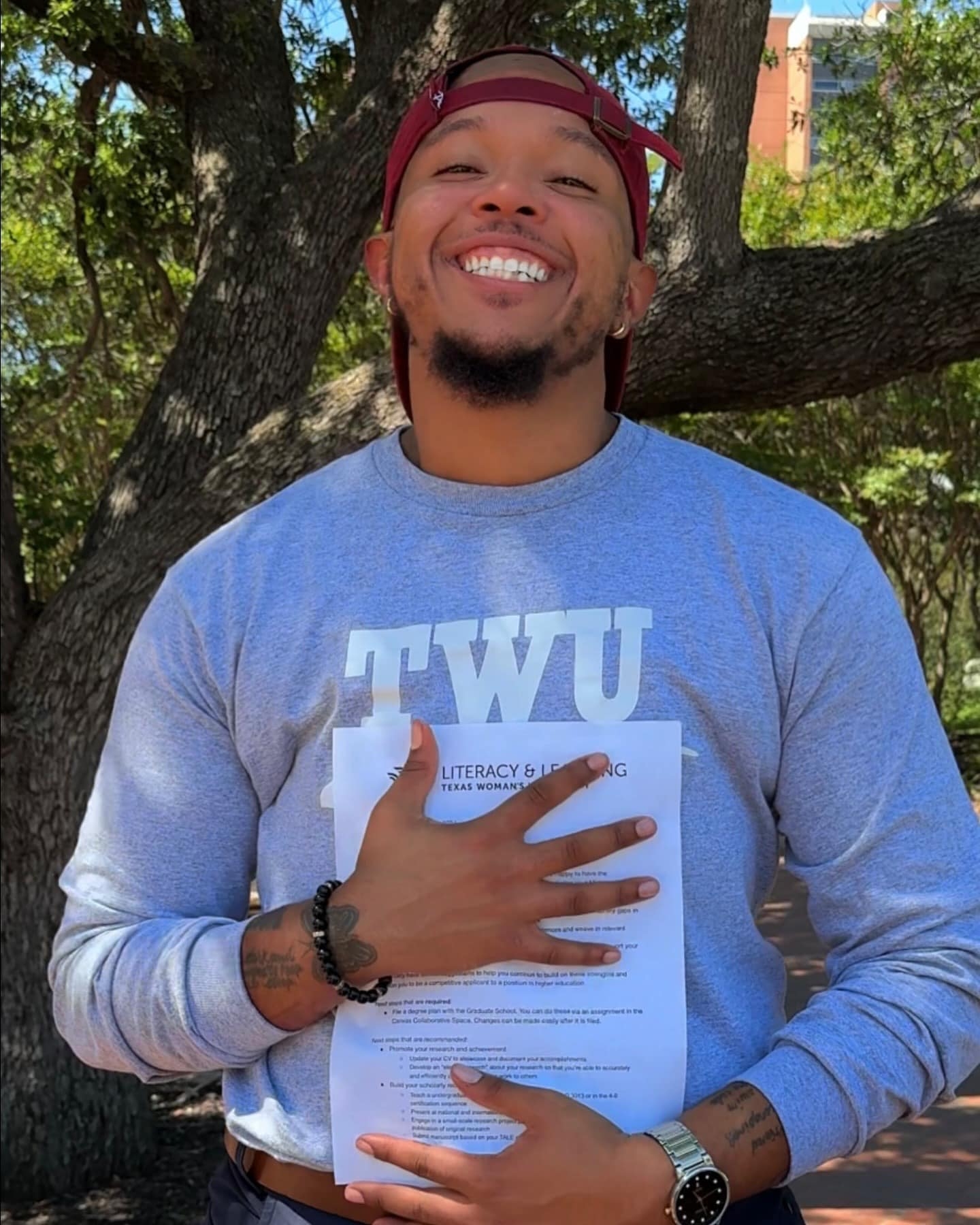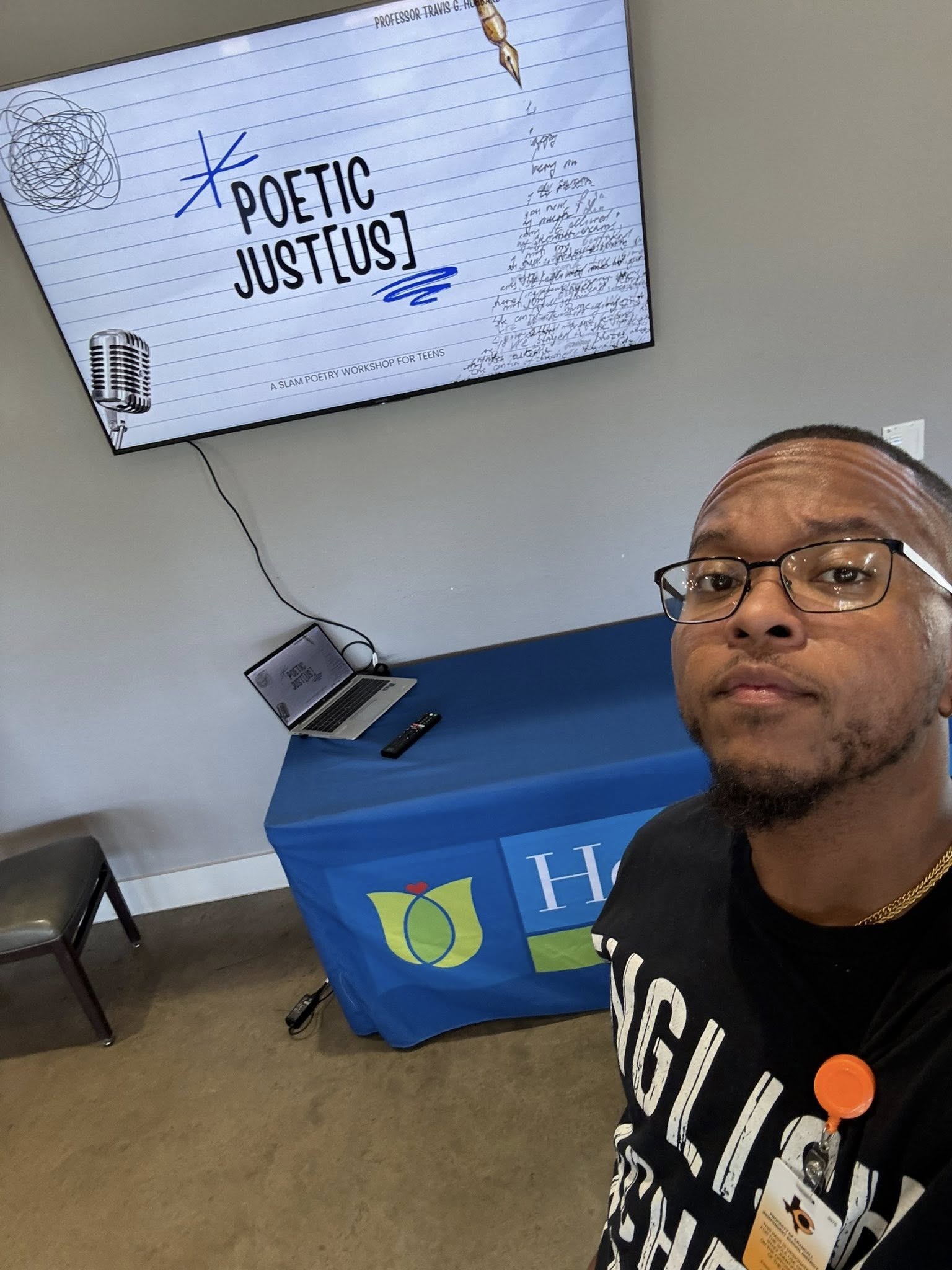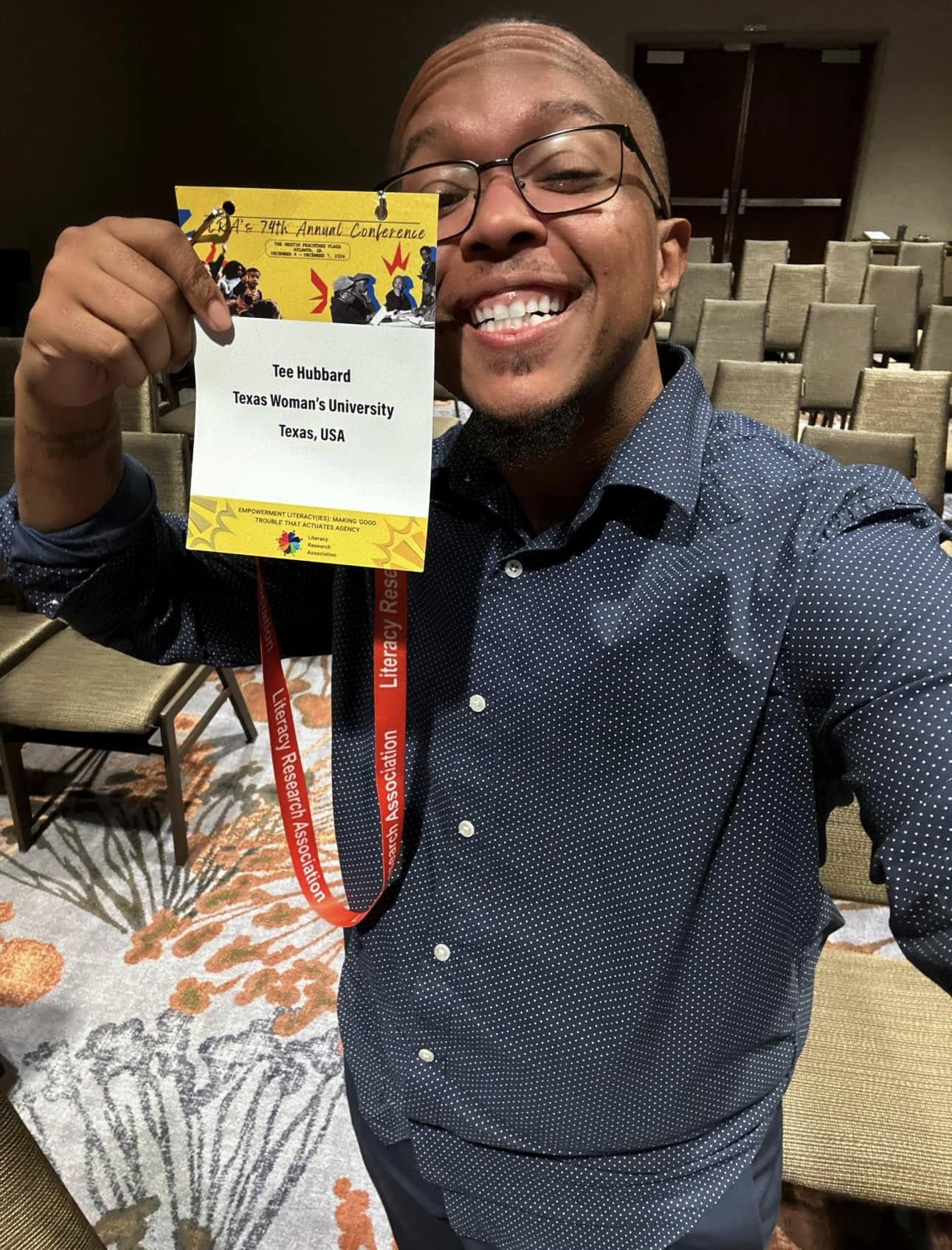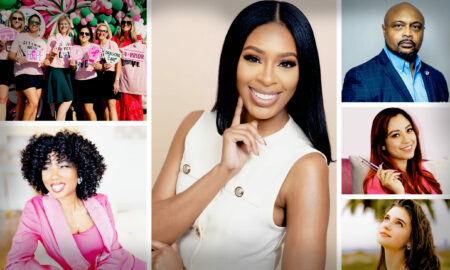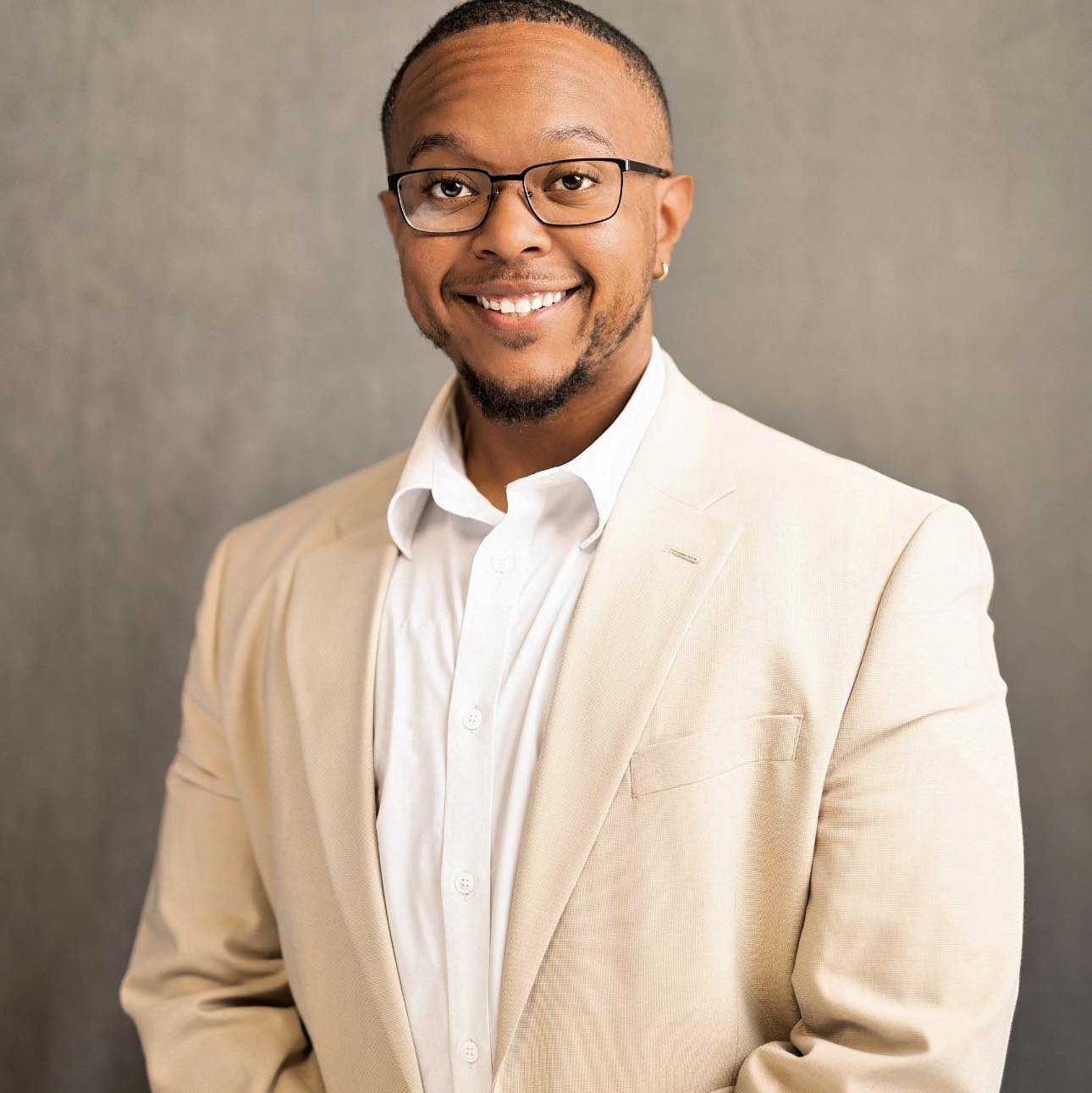

Travis Hubbard shared their story and experiences with us recently and you can find our conversation below.
Hi Travis, thank you so much for joining us today. We’re thrilled to learn more about your journey, values and what you are currently working on. Let’s start with an ice breaker: Have any recent moments made you laugh or feel proud?
For the last three years I’ve been working on my PhD in Literacy, Language, and Culture, and the journey has been anything but easy. In the middle of it all I went through a breakup that knocked me off balance and I ended up stepping away from classes for a little while. That pause was hard because it felt like I was watching my dream slip further out of reach. But when I came back I made a promise to myself that I would finish, no matter how long or how heavy the process felt.
There were late nights of writing, early mornings of trying to clear my head at the gym, and moments where doubt was louder than determination. Still, I kept moving. So when I finally finished writing my comprehensive exams and defended them in front of my committee, it felt like such a release. Passing with only minimal revisions made me laugh because I realized how much pressure I had been carrying, and it made me proud because I had proven to myself that even after being knocked down I could return stronger. For me it was more than an academic win. It was a reminder that resilience is not just about finishing something hard, but about finding your way back to yourself in the process.
Can you briefly introduce yourself and share what makes you or your brand unique?
When I was last on Voyage Dallas, I shared about my brand Soul Scraps, where I wrote poetry on vintage typewriters and used words as a way to preserve memory and feeling. That work was all about fragments of the soul captured in language.
Since then, my journey has evolved. My focus now is on the intersections of Language, Literacy, Education, and Culture. I teach teachers and students that literacy is more than just reading and writing… it’s multiliteracy. It’s rap as a form of poetry, social media as a text to analyze, and language as a mirror of identity and power. I want young people and educators to see that the ways they speak, write, and create outside of school are just as valid and valuable as the texts inside a classroom.
Alongside that work, I’ve begun creating language-based lectures on TikTok that break down concepts like Black English, raciolinguistics, and literacy in ways that are accessible and engaging. What started as short videos has grown into a community of over 20,000 followers, and it has opened up conversations that I never imagined would reach so many people.
At this stage, my brand is really about bridging scholarship, teaching, and culture creating spaces where people see themselves reflected in literacy and understand the power of their own voice.”
Outside of work, I still love stories in all their forms. Recently I started a videography company called Narrative North, where I get to tell stories through video. And on a personal note, I’m getting married this coming March! A new chapter I’m really excited about.
Amazing, so let’s take a moment to go back in time. What breaks the bonds between people—and what restores them?
I think what most often breaks the bonds between people is when trust is lost. It does not always happen in big or dramatic ways. Sometimes it happens through silence, through small miscommunications, or through little acts of dishonesty that slowly build into something larger. When someone no longer feels like the other person is showing up honestly, the distance that grows between them can feel even heavier than the original hurt.
I also believe those same bonds can be restored. For me, it always comes back to trust, honesty, and what I call ultimate vulnerability. As Brené Brown asserts in her work on vulnerability, connection is built when people are willing to show up fully as themselves, even when there is no guarantee of how the other person will respond. That kind of courage is what creates the space for healing.
I have experienced this in my own life. There were times when relationships felt strained or even broken, and what made the difference was when someone finally admitted, ‘Here is where I messed up’ or ‘Here is what I was really feeling.’ Those moments are never easy. They are uncomfortable and sometimes even painful, but they open the door to rebuilding trust. I have learned that when I practice the same kind of openness — when I admit my faults, share my feelings, and allow myself to be seen… that is when the bond begins to mend.
At the end of the day, people want to be met with honesty and to know they are safe enough to be vulnerable. When that happens, restoration may not be immediate, but it becomes possible. And for me, that possibility is where hope and healing live.
What have been the defining wounds of your life—and how have you healed them?
One of the defining wounds of my life was the ending of a relationship I believed would last forever. I proposed in Paris, just outside the Louvre, and for a moment it felt like a storybook beginning. But shortly after, it fell apart. For a long time I wrestled with that loss. There were layers to it — family disapproval that shadowed us, expectations of what love should look like, and the quiet realization that the ground we stood on was less steady than I wanted to admit.
In the aftermath, I found myself feeling sealed shut, as if the door to love and to myself had been bolted. I was not angry, just hollow. I remembered Hemingway’s A Clean, Well-Lighted Place, where the character searches in the night for a light that might ease the darkness. That was me — walking blind, just looking for a place of familiarity, a reminder that life could still hold warmth.
Over time, I began to see our breakup as part of what I call the social conventions of love. When love is wrapped too tightly in what others want for it, you lose sight of what you want for yourself. There is a kind of contortion that twists something simple and beautiful into something heavy and unsustainable. That lesson was painful, but it revealed something shared: all humans endure suffering. We cannot erase it, but we can choose to walk with people who will not add to it.
I hope she is happy, wherever she may be. As for me, I returned home to Dallas, back to the things I knew and the people who reminded me of who I was. And in that space of starting over, I found love again. This time it came softly — from someone with bronze eyes and a giving spirit who looked at me and said, ‘Let me be your soft place to land.’ Those words reminded me that love does not have to be contorted. It can be a shelter. It can be safe. And in that safety, I found my healing.
Alright, so if you are open to it, let’s explore some philosophical questions that touch on your values and worldview. Whose ideas do you rely on most that aren’t your own?
The ideas I lean on most that aren’t my own come from Norman Fairclough. When I first encountered his work, it felt like someone had finally put words to something I had always sensed — that language is never just language. It is never neutral. Every word we speak or write carries with it a history, a weight, a reflection of who holds power and who is being asked to bend to it.
That realization has shaped everything I do. In my teaching, it means I pay attention not just to whether a student ‘got it right,’ but to what their words reveal about how they see themselves and how the world sees them. In my research, it pushes me to look past the surface of feedback or assessment and ask what those words are really doing to a young person’s identity. And even in everyday life, it reminds me to listen closely, because so much of what we think of as ‘normal’ conversation is really a story about belonging, about legitimacy, about who gets to be heard.
Fairclough’s ideas keep me grounded because they remind me that working with language is never small work. It is work with people’s stories, with their dignity, with the way they make sense of themselves in the world. And that is something I carry with me everywhere — in the classroom, in my writing, even in the little TikTok videos I put out into the world. His ideas have given me a lens, but more than that, they’ve given me a responsibility. To never forget that behind every word is a human being
Okay, so let’s keep going with one more question that means a lot to us: What do you think people will most misunderstand about your legacy?
I think what people will most misunderstand about my legacy is my work ethic. From the outside, it might seem like I was always working, always producing, always pushing beyond measure. And yes, I worked hard. I carried ambition. I chased dreams. But that is not the whole story.
The truth is, I was not always working. I allowed myself to pause. I took time to notice the world — to smell coffee brewing in the morning, to sit in silence and let the sun rest on my skin, to laugh with friends until my sides ached. I let myself be human, not just a worker.
If people look only at the milestones — the degrees, the publications, the teaching, the TikTok lectures, the poetry, the research — they might think my life was built on constant striving. But my life was also built on stillness, on slow mornings, on moments of rest and love. Those were the places where I gathered strength to keep going. Those were the places where I remembered why the work mattered in the first place.
So if there is a misunderstanding about my legacy, I hope it is gently corrected by remembering that I did not just live to work. I worked, yes, but I also lived. I drank the coffee. I told the stories. I loved people deeply. And I hope that in the end, it is clear that my legacy was not only about what I produced, but about how I made space for joy, rest, and connection along the way.
Contact Info:
- Instagram: @TheTrillProfessor
- Youtube: TheTrillProfessor
